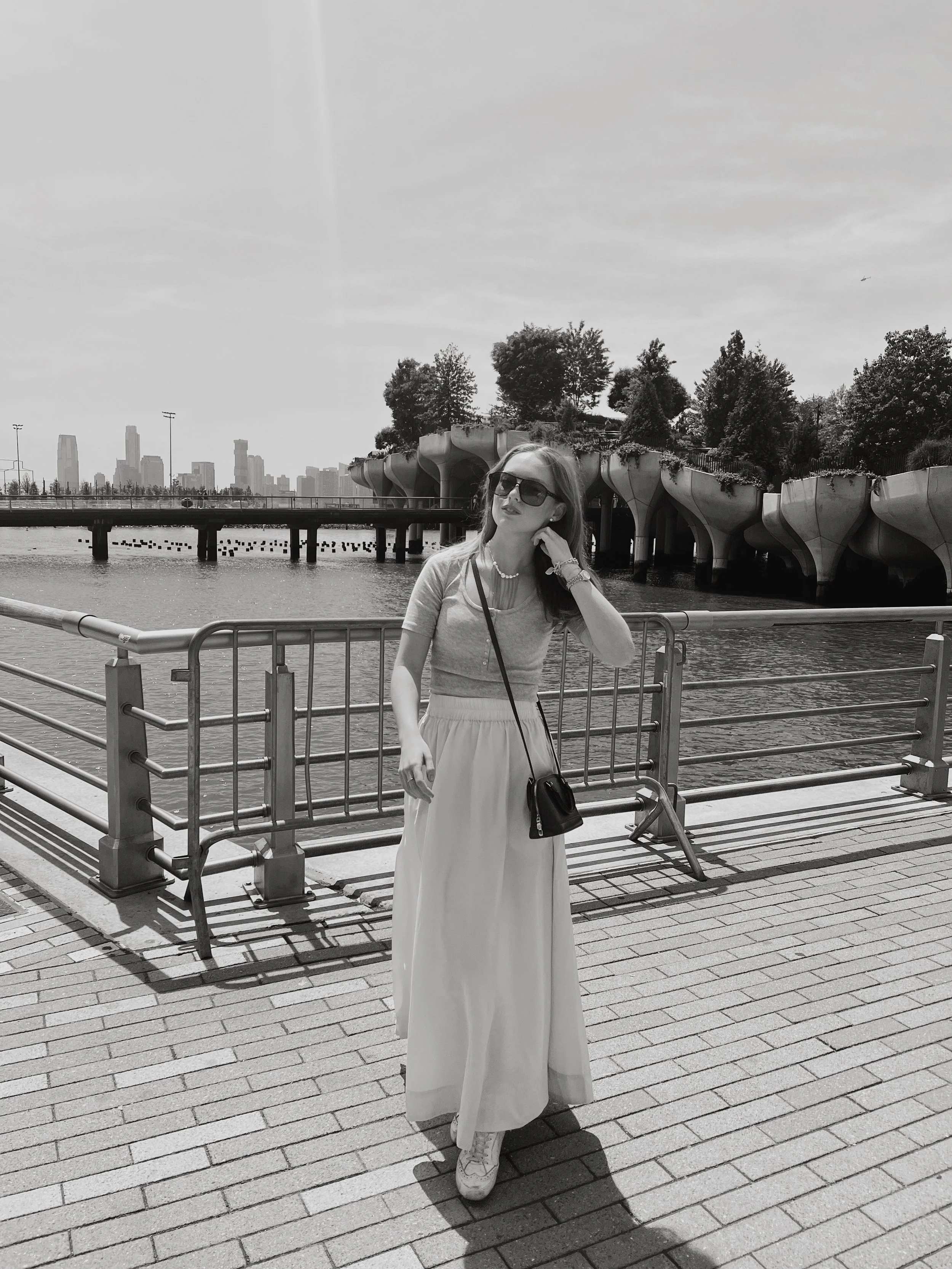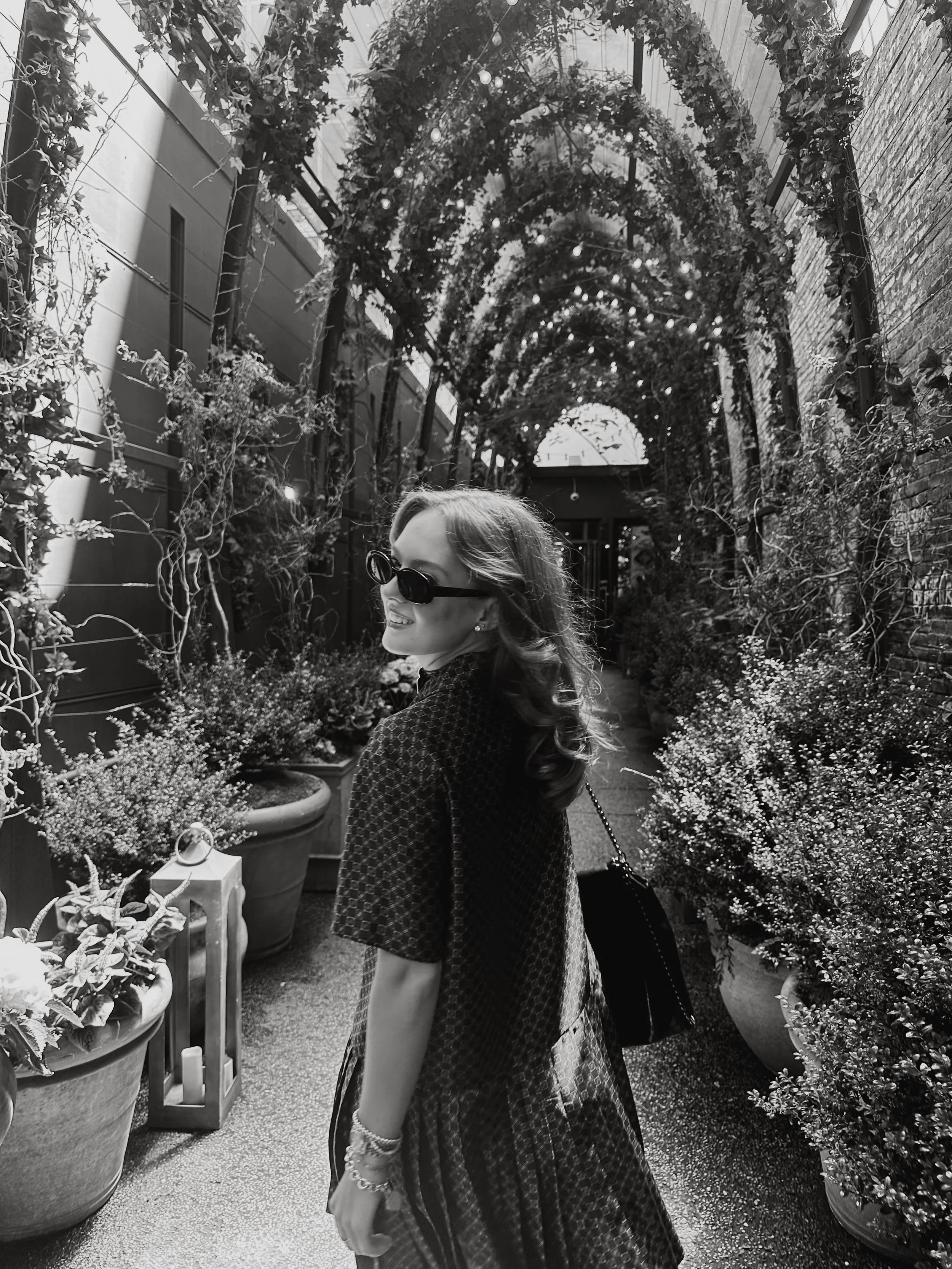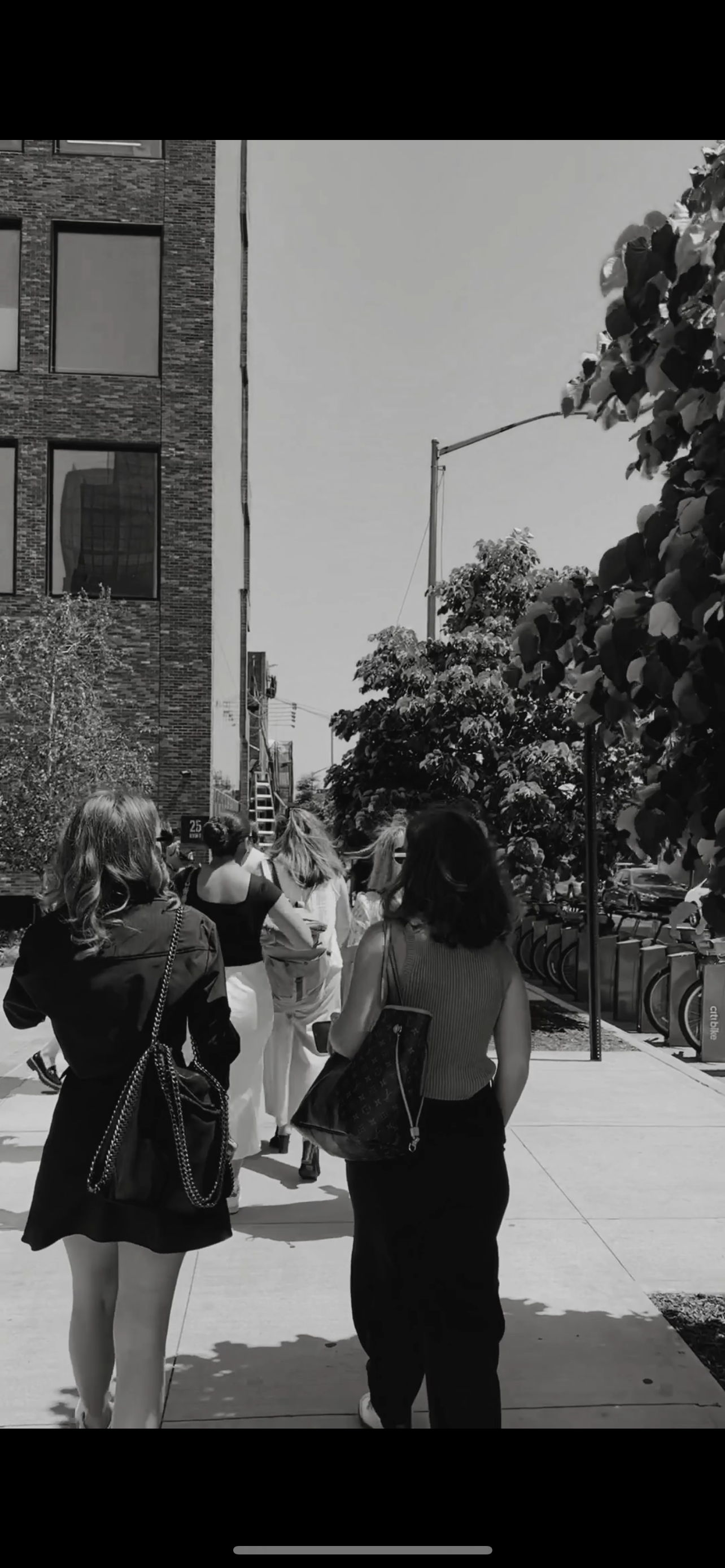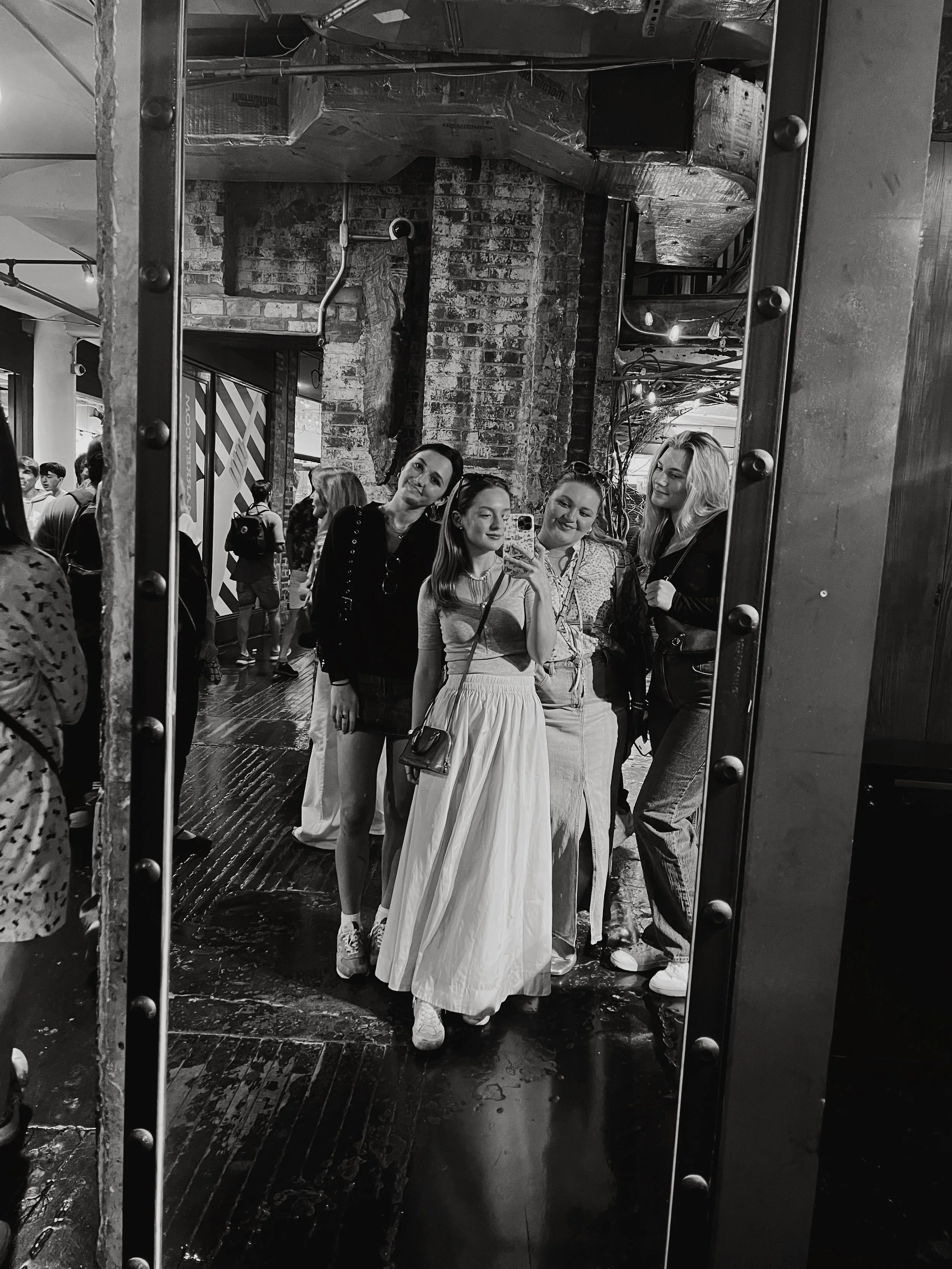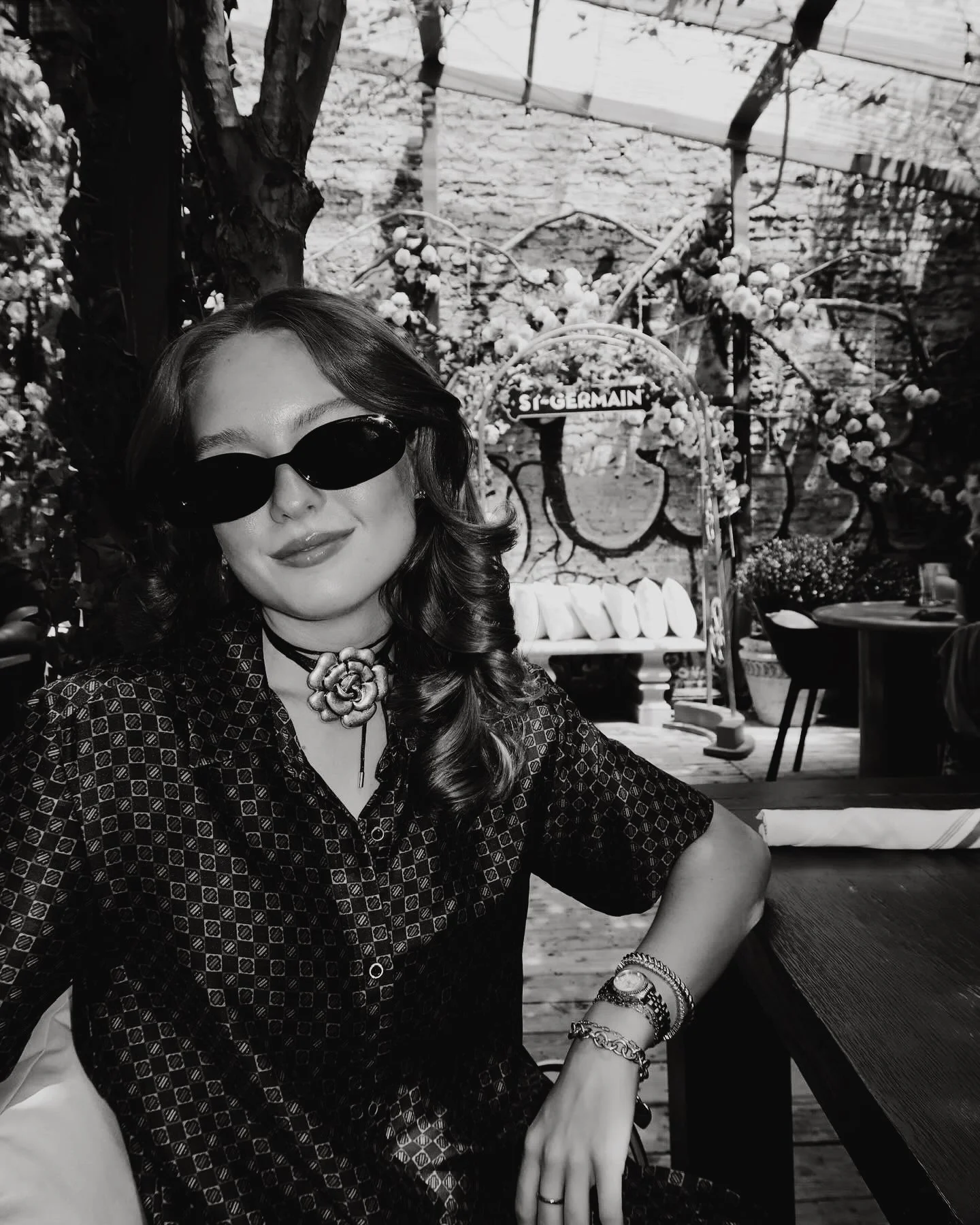Find Your Why
It's not just about what we do, but why we do it. This "why" is the driving force behind our passions, the fuel that propels us towards our dreams. It's the beating heart of our motivation and the compass that guides our career journey.
So, what exactly is this "why," and how do you uncover it?
Your "why" isn't simply your end goal, it's the underlying reason, the personal story, the life experience, or the deeply held belief that motivates you to strive for those goals. It's the spark that ignites your passion and the force that keeps you going when faced with challenges.
For some, their "why" might be a childhood dream, a desire to make a difference, or a personal experience that ignited a passion. For others, it might be a combination of factors that shape their unique worldview and aspirations.
The Power of Knowing Your Why
Discovering your "why" is transformative. It provides clarity, purpose, and direction. When you know your "why," you're more likely to pursue opportunities that align with your values and passions. You'll be more resilient in the face of setbacks and more motivated to achieve your goals.
But finding your "why" is not always easy. It requires introspection, self-reflection, and a willingness to dig deep into your personal experiences and beliefs. It's a journey of self-discovery, and the rewards are immense.
The journey to finding your "why" is an ongoing process. It may evolve and change over time as you grow and experience new things. But the more you understand your "why," the more fulfilling and purposeful your career journey will become.
So, take some time to reflect, explore, and discover what truly motivates you. Find your "why," and let it be the guiding light on your path to success.
Do & Feel
I recently had a crash course in the psychology behind effective marketing. One concept that stuck with me was the "Do & Feel" framework—the idea that great advertising doesn't just inform, it motivates. It ignites action and stirs emotions, leaving a lasting impression on consumers.
Do: The Call to Action
"Do" is about prompting a tangible response. It's the click, the purchase, the signup, the share—any measurable action a consumer takes after encountering an ad. Effective "Do" campaigns are clear, concise, and compelling, offering a clear value proposition and a seamless path to conversion.
During my agency visits, I saw firsthand how "Do" campaigns are crafted. From meticulously designed landing pages to persuasive calls to action, every detail is carefully considered to guide the consumer towards a desired outcome. Whether it's a limited-time offer or a personalized recommendation, the goal is to create a sense of urgency and excitement that motivates action.
Feel: The Emotional Connection
But great advertising doesn't stop at "Do." It also aims to "Feel"—to evoke an emotional response in the consumer. This is where the real magic happens. When an ad connects with us on an emotional level, it transcends mere information and becomes an experience. It makes us laugh, cry, think, or simply feel something.
The most memorable campaigns I encountered in NYC weren't just clever or informative; they were emotionally resonant. They tapped into universal human experiences, like the joy of connecting with loved ones, the thrill of adventure, or the satisfaction of making a difference. They told stories that resonated with viewers on a personal level,creating a lasting impression that went far beyond the product or service being advertised.
The Synergy of Do & Feel
The most powerful advertising campaigns seamlessly blend "Do" and "Feel." They combine a clear call to action with an emotional hook that resonates with the target audience. This creates a potent combination that not only drives action but also fosters brand loyalty and long-term engagement.
As I embark on my own advertising journey, I'm inspired by the "Do & Feel" philosophy. It's a reminder that advertising is more than just selling products; it's about connecting with people, sparking emotions, and inspiring action. Whether I'm crafting a social media post or a Super Bowl commercial, I'll always strive to create work that both motivates and moves.
The different sides of AdPR
My recent NYC adventure wasn't just about yellow cabs and Broadway shows; it was a deep dive into the dynamic world of advertising, public relations, and all the fascinating facets that make up this industry. One of the most insightful takeaways? The clear distinction between three core areas of AdPR: Strategy, Account, and Creative. Let's break it down.
Strategy
Strategists are the masterminds behind the scenes. They're the ones who analyze market trends, consumer behavior, and brand objectives to craft comprehensive campaigns that resonate with target audiences.
During my agency visits, I was struck by the strategists' passion for data and their ability to transform numbers into actionable insights. They're not just crunching numbers; they're unearthing the stories hidden within the data, stories that can shape brand narratives and drive meaningful results. It was also cool to see how strategy plays a role in creating pitches and decks for clients.
Account
Account professionals are the bridge between agencies and clients. They're the ones who build relationships, manage expectations, and ensure that everyone is on the same page. They're also the masters of juggling multiple projects and deadlines, all while maintaining a cool head and a positive attitude.
In my conversations with account executives, I was impressed by their ability to navigate the delicate balance between client needs and agency capabilities. They're not just yes-men (or women); they're trusted advisors who advocate for both sides, ensuring that every campaign is a win-win for everyone involved.
Creative
Creatives are the heart and soul of AdPR. They're the writers, designers, art directors, and producers who transform strategic insights into compelling content that captures attention and inspires action. They're the ones who make us laugh,cry, think, and ultimately, take action.
Witnessing the creative process firsthand was a truly magical experience. The energy, passion, and collaborative spirit in the creative departments were palpable. It was clear that these individuals were not just doing their jobs; they were living their passion, and it showed in the exceptional work they produced.
Finding Your Niche in the AdPR World
My NYC trip was a whirlwind of insights and inspiration, and it solidified my passion for the AdPR industry. While the three pillars—Strategy, Account, and Creative—are distinct, they're also interconnected, each playing a crucial role in the success of any campaign.
Imposter Syndrome
Imposter Syndrome: the persistent inability to believe that one's success is deserved or has been legitmately achieved as a result of one's own efforts or skills.
Amidst creative energy and impressive talent, I find myself wrestling with a familiar foe: imposter syndrome.
For post-grads, imposter syndrome is a familiar companion. We've spent years studying and preparing for our careers, yet when we finally step into the "real world," we're often plagued by self-doubt. It's almost like being under a spotlight.
There are a few reasons why imposter syndrome tends to flourish in the post-grad phase. First, we're often surrounded by incredibly talented and accomplished individuals, which can make us feel inadequate in comparison. Second, we're constantly learning and growing, which can make us feel like we're not quite "there" yet. And third, we're often dealing with high-pressure situations and expectations, which can exacerbate our insecurities.
Breaking Free from the Imposter Grip
While imposter syndrome can be a formidable opponent, it's important to remember that it's just a feeling—not a fact. Here are a few tips for tackling it head-on:
Acknowledge It: The first step is to acknowledge that you're experiencing imposter syndrome. Don't try to brush it under the rug or pretend it's not there.
Challenge Your Thoughts: When those negative thoughts start creeping in, challenge them. Ask yourself, "What evidence do I have to support this belief?"
Focus on Your Accomplishments: Make a list of your achievements and refer to it whenever you're feeling down. Remind yourself of all the hard work you've put in and the successes you've achieved.
Celebrate Your Wins: Don't be afraid to celebrate your victories, no matter how small they may seem. Recognizing your accomplishments can help to boost your confidence and quiet that nagging imposter voice.
Remembering, imposter syndrome is a common experience, especially among post-grads. It makes me realize people my own age are probably going through the same thing. I feel like imposter syndrome is perfectly normal, and you just learn to navigate it with time and experience. However, I always reming myself that no matter what to be proud of the positions I am put into.
Power of Gen Z
My recent reflections on what I can contribute to a future team have also reinforced a long-held belief: my generation, Gen Z, is a force to be reckoned with in the creative world.
We're not just the future of advertising—we're its present. Born and raised in the digital age, we possess an intuitive understanding of technology and social media that's practically ingrained in our DNA. We're not just consumers of content; we're creators, constantly pushing boundaries and experimenting with new formats.
But our value goes beyond just tech savviness. We're a generation that values authenticity, diversity, and social impact. We crave brands that align with our values and aren't afraid to take a stand on important issues. We're also masters of multitasking, juggling multiple projects and passions with ease.
So, what makes Gen Z so valuable to creative teams?
Digital Natives: We speak the language of the internet fluently. We know what resonates with our peers, what trends are taking off, and how to craft messages that cut through the noise.
Fresh Perspectives: We bring a fresh perspective to the table, challenging outdated ideas and pushing for innovation. We're not afraid to experiment and try new things, which can lead to groundbreaking campaigns.
Authenticity: We value authenticity above all else. We can spot inauthenticity a mile away, and we're drawn to brands that are genuine and transparent.
Diversity: We're the most diverse generation in history, with a wide range of backgrounds, experiences, and perspectives. This diversity enriches our creativity and allows us to connect with audiences from all walks of life.
Social Consciousness: We care about the world around us and want to make a difference. We're drawn to brands that share our values and are committed to social impact.
Adaptability: We're used to change and uncertainty. We're adaptable and resilient, able to pivot quickly when needed.
So, to all the creative directors and hiring managers out there: don't underestimate the power of Gen Z. We're not just the future of your industry—we're the key to unlocking its full potential.
Ad Agency - Job Hopping
My recent tour of New York City's advertising agencies was an eye-opener, to say the least. Not just for the creative energy buzzing in every office, but for the candid conversations I had with industry insiders. One topic that consistently surfaced? Job hopping.
Now, job hopping—the practice of switching jobs frequently, often within a year or two—has always been a bit of a controversial subject. Some argue it's a savvy career move, while others warn against the potential pitfalls. But in the fast-paced world of NYC advertising, it seems to be the norm, even encouraged by many agencies. This left me pondering: Is job hopping the secret ingredient to career advancement, or is it a recipe for disaster?
The Pros: Why Agencies Embrace the Job Hop
From the agency perspective, the benefits are clear. Job hoppers often bring fresh ideas and perspectives, injecting new energy into teams. They also tend to be highly adaptable and quick learners, as they've had to adjust to different environments and work styles. Additionally, agencies can benefit from the diverse skill sets that job hoppers acquire from working at various companies.
The Cons: Potential Pitfalls of the Job Hop
But it's not all sunshine and rainbows. Frequent job changes can raise red flags for some employers, who may question your loyalty or commitment. It can also be challenging to develop deep expertise in a specific area when you're constantly moving around. And let's not forget the potential stress and disruption that comes with constantly adapting to new roles and company cultures.
The Verdict: To Hop or Not to Hop?
Ultimately, the decision to job hop is a personal one. There's no one-size-fits-all answer, and what works for one person may not work for another. But as I learned from my NYC adventure, it's certainly a conversation worth having.
Curveballs
I recently found myself at a Yankees game while visiting New York City. The home team was comfortably ahead by three runs in the bottom of the eighth, so my friends and I decided to beat the traffic and head out early. Imagine my surprise when I checked the score later that night to find they'd lost! It was a complete shocker – an unexpected turn of events that seemingly came out of nowhere.
And that got me thinking... work is a lot like baseball. Sometimes, everything's going smoothly, you're cruising along, and then BAM – life throws you a curveball. Maybe it's a major client pulling out, a project deadline suddenly moved up, or a key team member unexpectedly quitting. Whatever the situation, it's crucial to know how to handle these unexpected twists and turns without letting them derail your career game.
So, what do you do when work throws you those curveballs?
Stay calm and collected: Don't let curveballs throw you off your game. Just like a batter facing a surprise pitch, your initial reaction is key. Take a deep breath, assess the situation, and avoid panicking. Remember, even the best players strike out sometimes.
Embrace the learning opportunity: View challenges as chances to grow. Curveballs are not just obstacles; they're opportunities for growth and development. Every challenge you face, every mistake you make, is a chance to learn and improve. After all, even the most seasoned pros need to practice their swing from time to time.
Communicate openly and honestly: Keep your team informed. In baseball, communication between players is essential for success. The same goes for the workplace. When facing unexpected challenges, be transparent with your team and stakeholders. Let them know what's happening, what you're doing to address the issue,and how they can help.
Maintain a positive attitude: Focus on solutions and opportunities. A positive attitude can be the difference between striking out and hitting a home run. Instead of dwelling on the negative aspects of the situation, focus on finding solutions and identifying potential opportunities. Remember, every setback is a chance for a comeback.
Turn curveballs into home runs: Use challenges to build resilience and adaptability. Just like a batter who adjusts their swing to hit a curveball, you can learn to adapt to unexpected situations and turn them to your advantage. By facing challenges head-on and learning from your mistakes, you can build resilience and develop the skills you need to succeed in any situation.
So, the next time life throws you a curveball at work, don't panic. Remember the Yankees – they may have lost that game,but they've also won 27 World Series championships. It's all about how you handle the unexpected that truly defines your success.
People for People - Collaborative Business
As a student who wants to work in advertising in the future, I believe that when diverse voices, perspectives, and skills come together, the results can be truly transformative.
For advertising agencies, collaborating with non-profits isn't just a feel-good initiative; it's a strategic imperative. By partnering with organizations that are making a tangible difference in communities, countries, and people's lives, agencies can tap into real stories, compelling visuals, and a shared sense of purpose.
I've been shown the powerful work that happens when creative minds and passionate changemakers join forces. It's not always easy – it requires vulnerability, open communication, and a willingness to step outside of comfort zones. But the payoff is immense.
Think about it: an advertising campaign that not only sells a product but also raises awareness for a critical social issue. A brand partnership that empowers a local community or supports a global cause. A piece of content that sparks conversation, inspires action, and leaves a lasting impact.
Collaboration isn't just about creating something new; it's about amplifying existing efforts, connecting disparate dots, and building a bridge between the business world and the communities it serves. It's about injecting authenticity into brands, purpose into campaigns, and meaning into our work.
I believe in advertising it is important to reach out to those non-profits, social enterprises, and community organizations that resonate with your/your clients values. Together, we can create something truly extraordinary.
Develop A Personal Brand
Authentic. A word that floats around in my brain 24/7. What does it mean? How does it apply to me? Why is it so much pressure?
The Oxford Dictionary defines authentic as "of undisputed origin; genuine." This is the perfect starting point when considering how to develop your personal brand. You don't need to resort to outlandish measures to gain recognition.Owning your authentic self is what truly sets you apart. As long as you are confident in your actions and how you carry yourself, the attention you attract will be well-deserved. Being genuine goes a long way, not just in your interactions with others, but also in how you treat yourself.
I had no idea where to begin. About a year ago, it dawned on me that to thrive in a creative environment, I needed to cultivate a personal style that transcended my clothing choices and permeated my work, social media presence, and everyday life. Through a process of trial and error, I have gradually developed my personal brand. It continues to evolve alongside me, which is the beauty of creating something that genuinely reflects your unique style.
The pressure to create a "perfect" brand can be overwhelming. However, there is immense value in drawing inspiration from various individuals, experiences, and cultures. Your brand doesn't have to be flawless; as long as you love it and it radiates from within, that's all that matters!
Some may recognize me as the girl who always has the perfect outfit for an event, the one who blends edge and femininity in her artwork, or the one who appreciates an eclectic perspective. However people perceive you, it's crucial that those perceptions align with your personal brand.
NYC Maymester - UGA
This May, I had the opportunity to go on a NYC Study Away program through Grady College at the University of Georgia. As a soon-to-be senior advertising major, this immersive experience offered an invaluable glimpse into the vibrant heart of the advertising world in New York City.
In preparation for this adventure, I conducted extensive research, exploring leading companies in the industry, the groundbreaking work they are producing, and the trajectory of the ever-evolving advertising landscape. Collaborating closely with my peers, we eagerly anticipated navigating the big apple.
Initially, the prospect of connecting with so many accomplished professionals in such a dynamic environment was a bit intimidating. However, my university exceeded all expectations by introducing us to a network of incredible alumni who welcomed us with open arms into their agencies and shared their wisdom during an unforgettable mid-week mixer. The opportunity to forge new relationships was exhilarating, and I look forward to continuing these connections long after my time in New York.
Stepping into renowned agencies and articulating my personal brand was a challenge, yet I discovered that even if a connection didn't directly align with my career goals, they invariably knew someone who could. The saying "It's all about who you know" resonated deeply as I engaged with more industry professionals.
Exploring the iconic landmarks of New York City was an absolute dream. Our professor proved to be an exceptional guide and mentor, while the rest of the group embarked on their own personal adventures. From mastering the intricacies of the subway system to discovering hidden gems in Central Park, every experience was exceptional.
This Maymester has profoundly shaped my aspirations for the future. I am filled with gratitude for the transformative opportunities it provided, and I am eager to embrace the next chapter of my academic and professional journey with newfound confidence and clarity.
